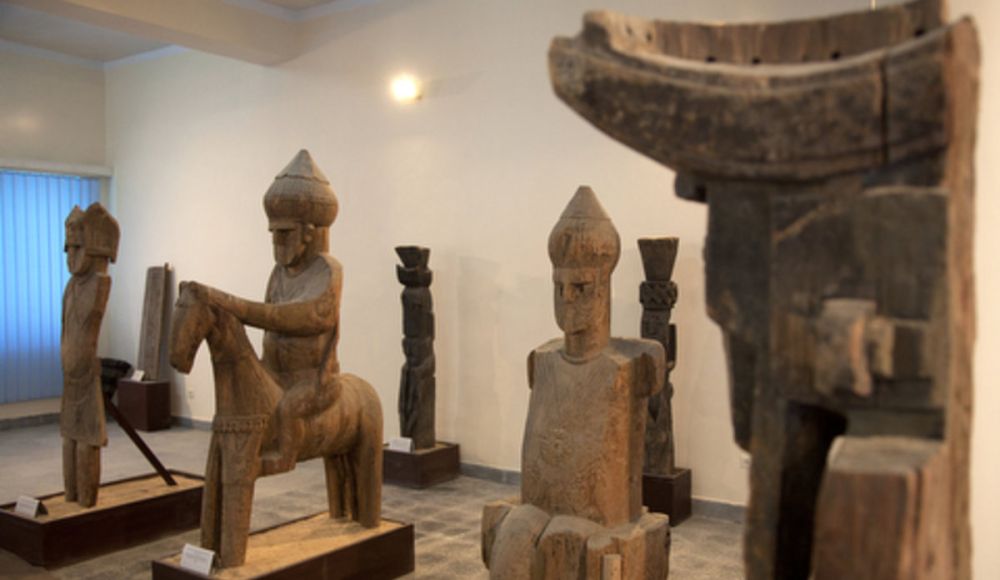The Kabul Museum, also known as the National Museum of Afghanistan, is situated in the heart of Kabul, the capital city of Afghanistan. Established in 1919, it has been an important cultural institution, showcasing a myriad range of artifacts spanning across the rich history of the country. With a collection that once held over 100,000 items, the museum's extensive exhibits included ancient textiles, coins, manuscripts, weapons, and stunning Buddhist art pieces. Tragically, the museum suffered significant losses during periods of civil war in the late 20th century, with many artifacts being damaged, looted, or destroyed. However, international and local efforts for restoration and repatriation of Afghan cultural heritage are ongoing. Even now, the museum serves as a testament to Afghanistan's resilience and the importance of preserving history. The historical treasures that remain - such as the Bactrian Gold and the remnants of Buddhist art from Ai-Khanoum - continue to draw history enthusiasts and scholars, making it a poignant place for understanding Afghanistan's vast historical and cultural legacy.

